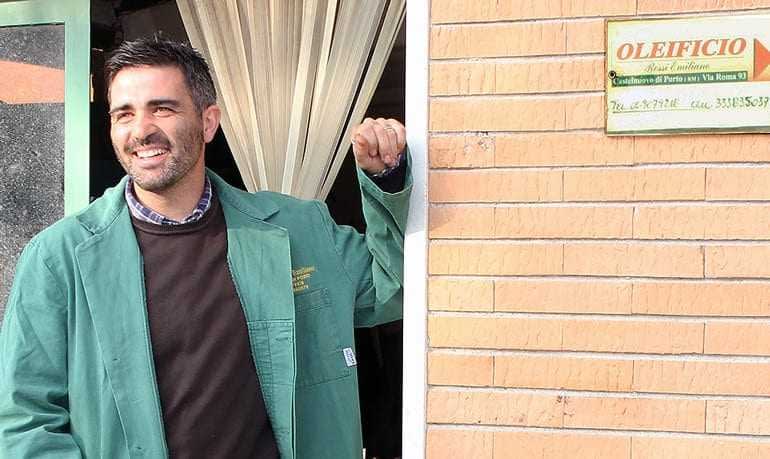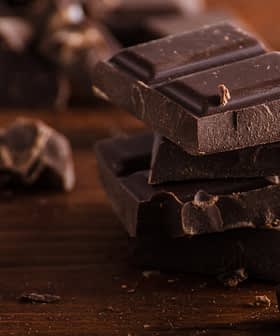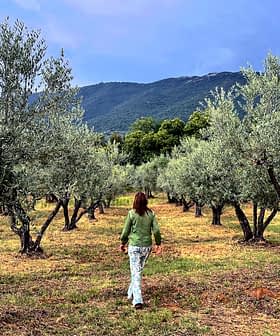
Riano is a place in the northern-most part of Rome with rolling hills and olive groves where peace and tranquility reign, not far from the bustling city center but away from all the chaos and the noise of busy city life.
It’s often in out-of-the-way places like this, where some of the most delicious, yet undiscovered, olive oil is produced.
Here in this sleepy town speckled with sheep and immersed in a timeless silence but for the echoes of young children’s voices who still play outside in gardens and fields, some families have been passionate producers of olive oil for centuries.
Lately the town has been bombarded with the arrivals of the ‘Romans’ — the city dwellers who have moved in to enjoy the country living lifestyle, while remaining just a stone’s throw away from the capital. The peaceful environment has not been affected much; it just feels a little more crowded, the locals have said.
In Riano you will not drive more than a few meters at a time without seeing the sign ‘Frantoio’ (oil mill).
Just down the road in Castelnuovo di Porto, the ‘Frantoio Rossi’ can be found — an oil mill that has agreed to spill a few of the secrets of its locally-acclaimed olive oil production.
The Rossi oil mill has been operating since 1977 — started by the father of Emiliano Rossi, the current owner — as an interest in olives was alive in their family and passed down from generations ago.
In 2000, Emiliano took over from his Father and now runs the mill on his own with a little help from his parents.
He has a vast clientele mainly comprising of locals and people from surrounding villages, but he has in the past had success in selling his product further afield, even to a French importer. At one point he exported his olive oils to Estonia.
Now he is happy with the business he has with faithful locals and devout olive oil lovers in the vicinity. He admits to preferring the security and rapport he has with his neighbors and claims his financial stability benefits from being open and readily available to customers.
As he is the sole proprietor of his company, Emiliano cultivates and cares for his olive trees and the entire oil production, which he does with passion and with the delicacy he says is required when making such a precious product; one that is prized for its health benefits as well as its culinary magic.
He sees this care as the reason for his success in a competitive trade along with the fact that his customers know exactly where the product is coming from; the tracability of foods being a growing concern in today’s world.
With his olive groves just several yards away from the oil mill, Emiliano guarantees that the whole procedure is done within strict time limits which he believes are vital to the production of good olive oil.
“The olives need to be picked when ripe: not left to fall. Once picked, they need to be milled within 48 hours to prevent the formation of acidity,” he said.
According to the Rossis, olives need to be handled with great care, as an olive is a delicate fruit and the only way to obtain an excellent oil is to treat the fruit with respect.
“Olives don’t like to be handled by different people, they don’t like to be mistreated or thrown around in a rough manner,” said Emiliano. “A good olive oilproducer should give love and attention to his trees and pour passion into achieving the best product.” ‘The olive whisperer’ came to mind while being told these precious hints.
Emiliano claims he has never needed to publicize his product. A good olive oilproducer can work well by word of mouth, he said. Satisfied customers are the key to his livelihood.
Production of olive oil in Italy this year has been hit by climate changes and the fast production of the olive fruit fly, which has thrived this summer in the abnormal humidity.
Prices are climbing as there is far less olive oil this year to go around. New products are being developed to help control and prevent the pest from taking over Italian olive groves, but with the warming climate it is sure to become more of a challenge.
Meanwhile families of producers in these peaceful towns to the north of Rome will continue their ever-flowing, small-scale production of their hand-crafted olive oil.
On the tables here at dinner time you will see the unlabeled, characteristic bottles containing the most esteemed local product.
Whether on a ‘bruschetta’ with finely chopped cherry tomatoes or as a finishing touch in a soup, olive oil is a vital part of the diet here, especially when it’s their own, home grown and home made.








